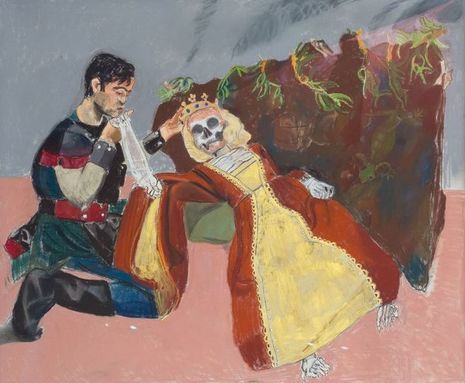Winnie the Pooh’s true Cambridge origin story
In the wake of new adaptations like Winnie the Pooh: Blood and Honey, Ben Bateman explores the origins of one of Britain’s (and Cambridge’s) favourite bears

Nearly a hundred years since A. A. Milne first introduced us to the hundred-acre wood, the image of his most famous character is more iconic than ever. With Pooh-Bear and his friends becoming public domain at the beginning of 2022, we can expect to see them around more frequently in whatever incarnations artists decide upon.
To both glee and grief from the public, one such incarnation is that of a murderous slasher in the Rhys-Frake Waterfield picture Winnie the Pooh: Blood and Honey. With Waterfield’s flick out now in the UK, I wanted to take the opportunity to explore the roots of Milne’s (bloodless) original story and encourage more people to do the same.
“To both glee and grief from the public, one such incarnation is that of a murderous slasher”
A. A. Milne, born 1882, was a well-respected playwriter and contributor to Punch magazine before he created our favourite fluffed friend. Winnie the Pooh first appeared in the poetry collection When We Were Young (1924), but it wasn’t long before he was given his own eponymous publication in 1926.
Over two decades before Pooh’s birth, Milne was a young Mathematics student at Trinity College. Before graduating in 1903, he had ingrained himself in Cambridge’s social life, getting involved in football and cricket and writing regularly for the student paper Granta. It is at Cambridge that Milne met fellow writer Arthur Conan Doyle – the two were cricket companions on the amateur team Authors XI. Milne’s son, Christopher Robin, followed in his father’s footsteps, attending Trinity in 1939. When Milne passed away in 1956, he bequeathed two original manuscripts to the College which remain on display to this day. While Cambridge clearly meant a lot to the Milne family, Milne’s character has equally meant a lot to Cambridge.
In a now-deleted tweet from March 2021, the University opted to congratulate its recent graduates by quoting one of the most popularised adages of Pooh-Bear from Disney’s 1997 rendition of the character, Pooh’s Grand Adventure: The Search for Christopher Robin:
“Congratulations to everyone graduating from #Cambridge in absence today! Promise me you’ll always remember: You’re braver than you believe, and stronger than you seem, and smarter than you think.”
With the tarnishing that Winnie and his friends may have suffered in the horror adaptation, I implore any fans of Milne’s creations to engage with them in a more enriching way. If you find yourself near Trinity (and if you’re thinking of watching Winnie the Pooh: Blood and Honey), I recommend exploring the Wren Library. Visit the manuscripts of Milne’s Winnie the Pooh (1926) and The House at Pooh Corner (1928), and afterwards, either see what Waterfield’s film has to offer (if you really are “braver than you believe”) or simply play a game of Poohsticks, for old times’ sake.
 News / Eight Cambridge researchers awarded €17m in ERC research grants27 December 2025
News / Eight Cambridge researchers awarded €17m in ERC research grants27 December 2025 News / News in Brief: carols, card games, and canine calamities28 December 2025
News / News in Brief: carols, card games, and canine calamities28 December 2025 News / Caius mourns its tree-mendous loss23 December 2025
News / Caius mourns its tree-mendous loss23 December 2025 Interviews / Meet Juan Michel, Cambridge’s multilingual musician29 December 2025
Interviews / Meet Juan Michel, Cambridge’s multilingual musician29 December 2025 News / Clare Hall spent over £500k opposing busway 24 December 2025
News / Clare Hall spent over £500k opposing busway 24 December 2025









